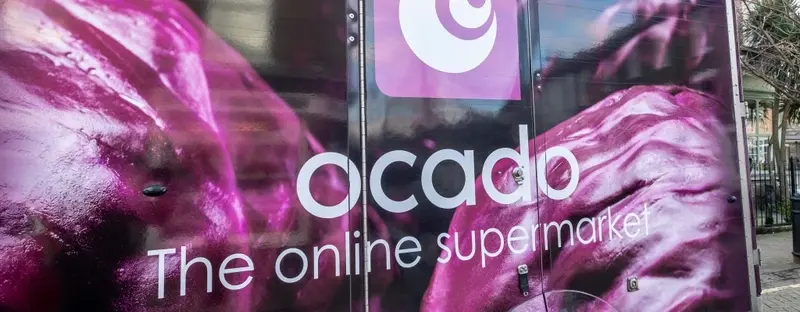
The market focus Tuesday was back on central banks, as a Bank of Japan policy meeting got underway and as the Bank of England was given food for thought in the form of UK jobs and wages data.
The FTSE 100 index opened down 11.63 points, or 0.2%, at 7,848.44. The FTSE 250 was down 64.87 points, or 0.3%, at 20,017.46, and the AIM All-Share was down 1.20 points, or 0.1%, at 862.79.
The Cboe UK 100 was down 0.1% at 785.49, the Cboe UK 250 was down 0.3% at 17,492.87, and the Cboe Small Companies was down 0.2% at 13,781.46.
The UK unemployment rate remained steady in November, according to the latest data from the Office for National Statistics, but average pay adjusted for inflation shrank at one of the fastest rates on record.
The unemployment rate was 3.7% in the UK in the three months from September to November, unchanged from the August to October period, but up from 3.5% in the June to August period.
The jobless rate was in line with market consensus cited by FXstreet.
‘The UK’s labour market remains very tight due to demand and supply constraints, although there are some tentative signs of loosening in the latest figures,’ said Daniel Mahoney, UK economist at Handelsbanken.
Annual growth in average total pay, including bonuses, and in regular pay, excluding bonuses, both were 6.4% in September to November period. This means pay continued to lag inflation in the UK. Consumer prices rose by 10.7% in November from a year before.
‘While average pay awards remain negative in real terms, they are at levels that are well above what would be consistent with the Bank of England meeting its 2% inflation target,’ Mahoney of Handelsbanken added. ‘It is also notable that public sector wage settlements are likely to further increase given they currently lag the private sector.’
For analysts at ING, the UK jobs market is, for the time being, the ‘biggest argument in favour of another 50 basis point hike by the Bank of England’ to combat inflation.
‘In reality, though, the February meeting rests on a knife edge, and there’s a clear chance the bank decides to mirror the Fed and slow the pace of rate hikes further now Bank Rate is well into restrictive territory. Tomorrow’s inflation data could be key,’ ING continued.
The ONS will release the UK consumer price index for December and producer price index for November at 0700 GMT on Wednesday.
The pound was quoted at $1.2224 at early on Tuesday in London, higher compared to $1.2203 at the stock market close on Monday.
In London, Ocado plunged 9.3% after its joint venture with high-street retailer Marks & Spencer said annual revenue had fallen by 3.8% to £2.2 billion.
This came despite revenue in the 13 weeks to November 27, its financial fourth quarter, rising by 0.3% against the previous year to £549.4 million.
Ocado noted that current headwinds relate to inflationary costs, capacity investments to support future growth, and higher marketing costs.
Ocado Retail expects to be close to break-even earnings before interest, tax, depreciation and amortisation in financial 2022. Looking ahead to financial 2023, it expects ‘marginally positive’ Ebitda on mid-single-digit percentage revenue growth.
Shares in Marks & Spencer slipped 0.2%.
Unilever shares lost 1.3% after Bernstein cut the consumer goods firm to ’underperform’ from ’market-perform’.
Experian were down 1.2%. The consumer credit checker said it delivered a financial third-quarter performance in line with expectations thanks to new products and new business wins.
Organic revenue growth in the three months ended December 31 was 6%, and total revenue growth was 7%.
For the full financial year, Experian left its expectations for revenue unchanged at growth between 8% and 10%
In the FTSE 250, Quilter fell 4.1% as JPMorgan cut the wealth management firm to ’underweight’ from ’neutral’.
Hays rose 1.7% after it reported net fees rose by a double-digit percentage in its second financial quarter.
In the three months ended December 31, the recruitment company said net fees recorded 11% growth against the previous year, driven by increased fee margins and the targeting of higher-value markets. On a like-for-like basis, growth was 8%.
‘For the first time in seven quarters, our largest business of Temp & Contracting grew faster than Perm, and Temp volumes increased through the quarter, while overall Perm volumes decreased modestly. Around the world we delivered a number of quarterly fee records, including our largest market of Germany, in EMEA and our global Technology business,’ Hays said.
Elsewhere in London, Esken soared 11% as it announced a multi-year agreement with easyJet to operate from London Southend Airport.
The aviation and energy infrastructure firm said the agreement allows easyJet to develop its network and capacity at London Southend Airport, including a newly announced route from London Southend to Amsterdam.
Shares in easyJet were down 0.5%.
In European equities on Tuesday, the CAC 40 in Paris and the DAX 40 in Frankfurt were both up 0.2%.
The euro stood at $1.0832 early on Tuesday, higher against $1.0822 at the London equities close on Monday. Against the yen, the dollar was trading at JP¥128.55, unchanged compared to JP¥128.55 at the close on Monday.
The Bank of Japan’s two-day policy meeting kicked off on Tuesday. There has been speculation that the central bank will call time on its yield curve control policy.
The BoJ bought over JP¥2 trillion, or $15.58 billion, worth of government bonds on Monday ahead of its meeting, according to Nikkei.
The yield on the 10-year government bond, which the financial newspaper noted serves as a benchmark for long-term interest rates, spiked above the BoJ’s 0.5% target. It was the second-successive day that the yield has spiked to above the BoJ’s target.
In Tokyo on Tuesday, the Nikkei 225 index closed 1.2% higher.
In China, the Shanghai Composite closed down 0.1%, while the Hang Seng index in Hong Kong closed down 0.8%.
China’s economy grew 3.0% in 2022, official data showed, one of the weakest rates in 40 years owing to the Covid-19 pandemic and a real estate crisis.
Beijing had set itself a target of 5.5% annual growth, a rate already much lower than the performance of 2021, when the country’s gross domestic product increased more than 8%.
In the fourth quarter, China’s economy grew 2.9% year-on-year, compared with 3.9% in the third quarter, the National Bureau of Statistics said.
Tuesday’s figures represent China’s worst growth figures since a 1.6% contraction in 1976 - the year Mao Zedong died - and excluding 2020, after the coronavirus emerged in Wuhan in late 2019.
The S&P/ASX 200 in Sydney closed marginally lower.
Financial markets in the US were shut on Monday for a public holiday, reopening on Tuesday.
Brent oil was quoted at $84.71 a barrel early in London on Tuesday, up from $84.20 late Monday. Gold was quoted at $1,909.83 an ounce, sharply lower against $1,917.90.
Copyright 2023 Alliance News Ltd. All Rights Reserved.





